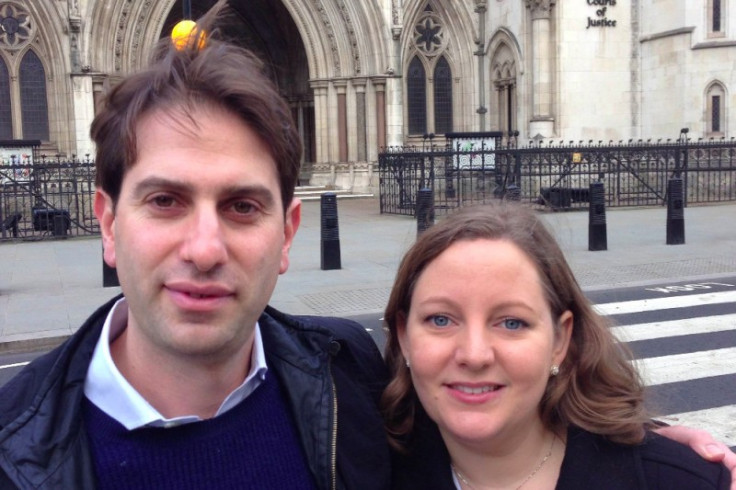Heterosexual couple take civil partnership challenge to High Court

A heterosexual couple from London took their fight to get a civil partnership to the High Court on Tuesday (19 January 2016). Charles Keidan and Rebecca Steinfeld say that the case is "a basic issue or discrimination and equality".
Steinfeld and Keidan have been in a relationship for five years and have an eight-month-old child. They have said they want to get a civil partnership because they view marriage as a patriarchal institution. The Civil Partnership Act 2004 says that the two partners must be of the same sex.
Steinfeld told the BBC, "We see each other as partners in life and want to be partners in law." She also said that they wanted their relationship to be recognised in "a social institution which is modern, which is symmetrical and that focuses on equality".
Representing the couple, Karon Monaghan QC told the hearing: "The claimants submit that the prohibition on access to a civil partnership by opposite-sex couples is directly discriminatory on grounds of sexual orientation since same-sex couples may enter into a civil partnership or a marriage, but opposite-sex couples may only enter into a marriage."
If they were unable to get a civil partnership, the couple would be "forced to enter into marriage against their consciences or remain without the legal protection and privileges that they and their child need, and to which they believe they should be entitled," Monaghan said.
A petition supporting the couple has already gathered 30,000 signatures. Monaghan suggested that education secretary Nicky Morgan had said there were no good grounds for denying Steinfeld and Keidan a civil partnership.
The proceedings are expected to last for two days, with lawyers for the government asking the court to throw out the case.

Counsel for the education secretary, Dan Squires, told the court: "A decision has also been taken by the government to wait a period of time to see how extending marriage to same-sex couples impacts upon civil partnerships before reaching a final decision on the future of civil partnerships, and has decided that it is not necessary to undertake the costly and complex exercise of extending civil partnerships in the interim where they may be abolished or phased out in a few years."
© Copyright IBTimes 2025. All rights reserved.






















